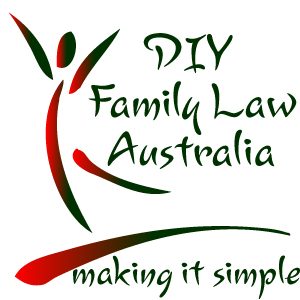When are Same Sex relationships legally recognised

Same Sex Couples must navigate a minefield of the wide variety of various Federal and State laws which apply to them.
This is because the Federal Government has the power to make some laws for some areas, but they have given power to each individual State and Territory to then make laws for some other areas to apply within their individual State or Territory.
Since the States and Territories do not have to consult each other, or make their laws the same, different laws apply to some areas depending on which State or Territory you live in.
Same Sex Relationships: Federal Laws or State Laws?
Federal laws are those laws that apply Australia wide. State laws are those laws that apply in each particular State for things in that State.
Whether something is a State law or a Federal law depends on whether it is an area that the Australian Government can make laws for, or whether it is an area that each State has responsibility for.
The Australian Federal Parliament passed laws recognising same-sex couples in Federal law in November 2008 and in the Australian Federal Parliament passed amendments to the Federal Marriage Act which took effect from Saturday 9 December 2017 to allow same sex marriage in Australia.
This means at least as far as Federal law is concerned, that same sex couples have the same rights as unmarried heterosexual couples.
Same Sex Relationships: Federal Law Areas
Federal law areas include (amongst other things) taxation, social security, marriage, defence, immigration, bankruptcy, currency, copyright, foreign affairs, postal & telecommunication services and more recently for some states only, family law.
This means that in Australia in those areas such as taxation, social security, marriage defence, getting married, bankruptcy and foreign affairs, same sex relationships are legally recognised.
The Australian Government passed amendments to the Marriage Act 1961 (Cth) which apply from Saturday 9 December 2017 to allow same sex couples to marry, by changing the definition of marriage in the Marriage Act from being a ‘union of a man and a woman” to a “union of two people”. This has resulted in a necessity to make changes to may other pieces of Federal Legislation, such as the Sex Discrimination Act, Family Law Act, Migration Act and Australian Defence Force Cover Act, in order to remain consistent with this definition.
The amendments to the Federal Marriage Act also mean that from 9 December 2017 same sex couples who married overseas also have their unions recognised under Australian law. This also makes it easier for those couples to divorce. This applies to same sex couples who married overseas prior to 9 December 2017 and to same sex couples who marry overseas after this date in countries where same sex marriage is legally recognised overseas.
When marrying in Australia now, changes have also been made to the Marriage Act so that same sex couples can choose to use the word “spouse” or “husband” or “wife” in the legal vows celebrants recite at weddings. The word “spouse” was added, as previously, only “husband” or “wife” could be used.
The amendments to the Marriage Act 1961 (Cth) were made by the passing of the Marriage Amendment (Definition and Religious Freedoms) Act 2017 on Friday 8 December 2017, it taking effect from midnight, so from Saturday 9 December 2017.
More can be read about marriage equality in Australia on the Australian Government’s website including:
- requirements to marry in Australia
- Authorised celebrants (both Ministers of Religion and Marriage celebrants)
- Foreign same-sex marriages
- Family law and same-sex divorce in Australia and overseas
- Australian Marriage Law Postal Survey
Same Sex Relationships: State Law Areas
State parliaments make laws which apply to areas of State law.
Areas of State law include Education & Schools, Criminal behaviour & Police, Transport, Community Services, Consumer Affairs, Ambulance Services, Hospitals and Utilities such as Electricity and Water Supply.
People who changed genders were previously unable to change sex on birth certificates and other official documentation if they were married, as State or Territory governments could refuse to do this as it could be seen as facilitating a same sex union. Many transgender people have been forced to divorce if they wanted to officially change gender. From December 9 2018 State and Territory governments will no longer be able to clock changes to birth certificates and other documents. It is State and Territory Governments who maintain the register of Births, Deaths & Marriages. State and Territory governments have been given one (1) year from the amendments to the Marriage Act 1961 (Cth) to have enough time to implement this to change their legislation and procedures.
Same Sex Relationships: Family Law
Family Law property settlement for de facto couples including same sex couples was an area of State authority, however in about 2009, all Australian States except Western Australia, gave up their power to make “Family Law” for those couples and gave their power to the Australian federal government instead.
Accordingly, the Family Law Act 1975 was amended some years ago to recognize couples in same sex relationships.
The definition of “de facto” in the Family Law Act includes those in a same sex relationship.
Accordingly for de facto couples in every Australian State except Western Australia (where state law applies), the Family Law Act will apply, if the relationship of a same sex couple broke down after:
- 1 March 2009 for residents of Queensland, New South Wales, Australian Capital Territory, Victoria, Tasmania and the Northern Territory;
- 1 July 2010 for residents of South Australia.
This also means that under the Family Law Act, same sex couples can enter into Binding Financial Agreements, which include Cohabitation Agreements and Financial Agreements after separation.
If a de facto couple separated before the date above that applies to them in the state they are living in, then state law applies to their property settlement.
If a same sex couple marry, as they are legally able to after the amendments to the Marriage Act 1961 (Cth) and subsequently separate or divorce, then they have the same rights as married heterosexual couples under the Family Law Act 1975 (Cth).
Same Sex Relationships – More Information
If you want to find out about registration of a Same Sex Relationship read our information sheet How do I register a Same Sex Relationship and do I need to.
Read more about Marriage and Civil Unions for Same Sex Couples in the information sheet We’re in a Same Sex Relationship – Can we have a Civil Union.
The laws about fostering or adopting children for same sex couples is explained in our information sheet We are a Same Sex Couple – Can we Foster or Adopt Children.
Find out more about having a baby through artificial insemination in the information sheet Using Artificial Insemination to have a baby in a Same Sex Relationships.
You may have acquired some assets or got yourself into a position where you are earning a very good wage. The information sheet Should I enter into a Binding Financial Agreement to protect myself may provide some helpful information for you.
If you are thinking about entering into a Cohabitation Agreement with your partner, read the information sheet What type of Binding Financial Agreement do I need for more information.
De Facto Relationships – More Information
It might also be important for you to read the checklist of things a court looks at to decide whether you are in a de facto relationship, the time limits applicable to your de facto relationship, how to protect your assets, the threshold requirements for de facto couples to be apply to apply for property settlement and other important legal information.
You can read more in the following sections of our website:
- De Facto Relationships
- Same Sex Relationships
- Binding Financial Agreements
- Separation
- Parenting & Child Issues
- Child Support
- Court Process & Representing Yourself
- Consent Orders
- Mediation & Dispute Resolution
- Family & Domestic Violence
- Property Settlement
- Spousal Maintenance
- Adoption
- Surrogacy
- Read Actual Cases
- Divorce
Connect with us on Facebook

Other Pages in the Same Sex Relationships Section
- Same Sex Relationships Laws Overview
- Necessity of & How to Register a Same Sex Relationship
- Same Sex Couples: Civil Unions
- Can Same Sex Couples Foster or Adopt Children
- Using Artificial Insemination to have a baby in a Same Sex Relationship
- Should you do a Binding Financial Agreement to protect yourself?
- What type of Binding Financial Agreement do you need?
- Requirements for a Court to say you are in a De Facto Relationship
- Use this checklist to see if you are in a De Facto Relationship
- What are the Time Limits for De Facto Relationships
- The law for Qld De Facto Couples who separated before 1 March 2009
- How to protect your assets


